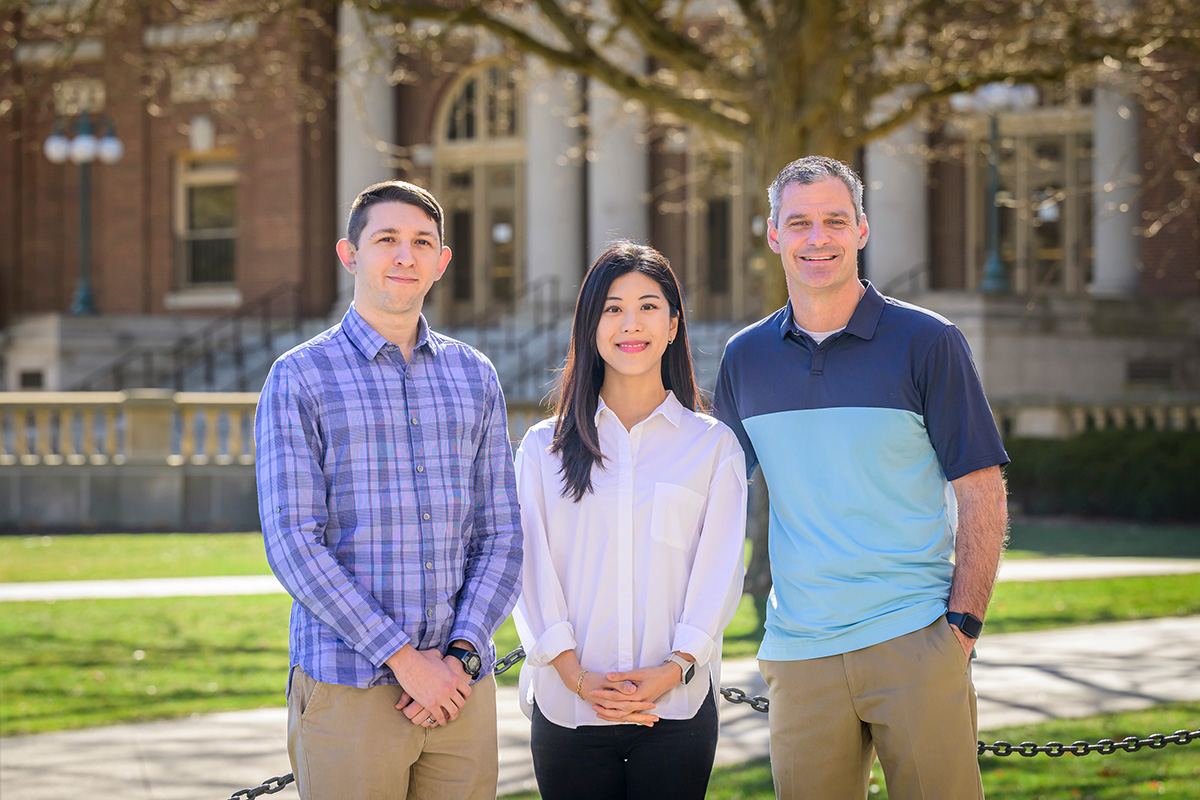The study highlights the power of emotional storytelling in overcoming barriers to organ donation, a critical issue in addressing the persistent shortage of available organs for transplantation.
The team’s findings...

Communications Professor Brian Quick, right, and from left, doctor students Ethan Morrow and Minhey Chung. (Photo by Fred Zwicky)
A new study sheds light on the impact of emotional radio ads in bolstering support for organ donation among non-donor listeners.
The study was conducted by Brian Quick—a communications professor at the University of Illinois Urbana-Champaign and director of the Health Communication Online Master of Science Program—along with Communication Studies Professor Tobias Reynolds-Tylus, of Madison University, and Illinois doctoral students Minhey Chung and Ethan Morrow. It was featured recently in an Illinois News Bureau article, “Emotional radio ads may ease listeners’ qualms, boosting support for organ donation.”
The study highlights the power of emotional storytelling in overcoming barriers to organ donation, a critical issue in addressing the persistent shortage of available organs for transplantation.
The team’s findings underscore the need for creating tailored messaging strategies to address the persistent shortage of organs for transplantation, especially among African American and Hispanic populations. They also offer valuable guidance for future donor-recruitment campaigns.
“Our results point to some clear message recommendations for those working to boost organ donor registration,” Quick said. “That is, when reaching a mistrustful audience, depicting stories of organ recipients will likely elicit feelings of happiness, which in turn will increase ad persuasiveness among this skeptical audience. Together, we hope this knowledge can be used to improve campaigns designed to educate the public about organ donation.”
Read the full Illinois News Bureau article here.